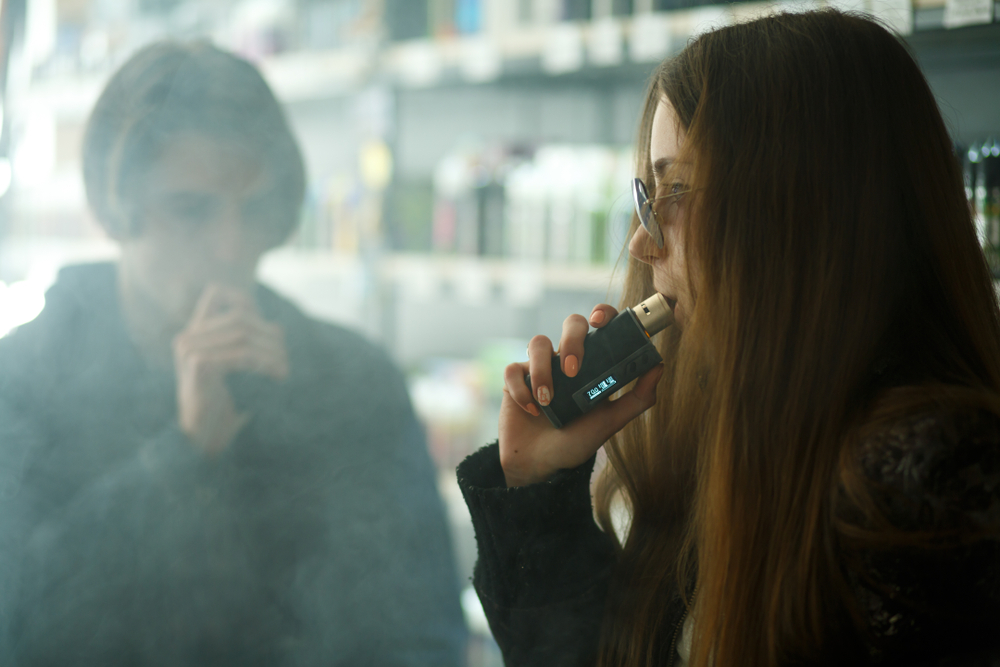For many parents, the marketing of e-cigarettes and other vaping products is likely eerily familiar, and it should be. E-cigarettes are following the same tactics as big tobacco companies. Unfortunately, the constant insistence of “just water vapor” and “no smell, like cigarettes” has convinced many teens to use products like Juul, Moti, Bo One, and other vaping products.
However, it is now illegal for tobacco products—which includes vaping products—to be sold to individuals under the age of 21, thanks to new federal laws signed this past December. That means that if your teen manages to acquire an e-cigarette and other vaping products, they are engaging in illegal activities. That can be a slippery slope to other troubled teen behaviors that will require intervention.
If your teen is under the false impression that vaping is safe and that anyone against is just a stick in the mud, then it’s time they were educated on the real cost of vaping.
Vape Liquid Isn’t Just Harmless Water And Flavoring
Teens are often uninformed when it comes to what exactly they are inhaling when they are vaping. According to the National Insititute on Drug Abuse, 66% of teens believe that there is only flavoring in their e-juice. Add the 13.7% of teens who have no clue about what they are inhaling, and you get a staggering 79.7% of teens who are using a product that can permanently damage their health—and teenagers are completely unaware.
If your teen doesn’t know what is in e-liquids, you should talk to them about these ingredients:
- Glycerin – Innocuous in other prescription medications and other products, glycerin is a tasteless and odorless liquid delivery system. Generally, glycerin is considered harmless; however, new research has indicated that vaping glycerin—and propylene glycol—can cause lung inflammation.
- Flavoring – The variety of flavors is a big part of teens’ attraction to vaping, as the flavors can range from strawberry to bubble gum. These sweet flavors make vaping more attractive to young and older teens. However, some types of flavoring can lead to obliterative bronchiolitis, also called popcorn lung, which is permanent.
- Propylene glycol – A lab-created liquid, when vaped, propylene glycol can be damaging to those who have lung issues such as emphysema and asthma.
- Nicotine – While not all e-liquids contain nicotine, most of them do unless specifically marked. In fact, some popular e-liquid cartridges like Juul contain a whole pack of cigarettes worth of nicotine in one pod.
E-Cigarette Increase Likelihood Of Teens Using Other Tobacco Products
Even though the nicotine content packed into some e-cigarette liquids are as high as an entire pack of traditional cigarettes, the rush from vaping is slower than smoking a traditional cigarette.
Teens who are looking for a quick chemical rush will often start smoking cigarettes to get the initial high. In fact, researchers have noted that the use of e-cigarettes can act as a gateway drug. As nicotine is highly addictive, it can lead teens to smoke cigarettes, using other tobacco products, and moving on to illicit drug usage.
Health Issues Associated With Vaping
Parents who are trying to convince their teen about the real costs of vaping should be sure to discuss the health issues that have been found to be associated with vaping. While many teens are under the impression that vaping is completely harmless, that is far from the truth.
- Lung damage – As mentioned above, there is a variety of lung health issues that can result from teens vaping, ranging from lung inflammation to popcorn lung. Regular vaping can also leave teens with a constant cough and vulnerable lungs.
- Impacts teen brain development – The teenage brain is constantly growing and developing, and will continue to do so until about 25 years old. But using nicotine during the teenage years can cause a significant negative impact on their brain development. Issues such as developing psychiatric disorders, attention deficit, and cognitive impairment.
- Oral health issues – Vaping can also impact a teen’s oral health. Nicotine vaping can hide gum disease until it has become severe as well as demineralize teeth. As their teeth lose mineral density, it is far easier for tooth decay to occur.
- Injuries – Vape pens, cartridges, and other vape products are not the most stable, especially if they have been modded/altered. There are several incidents where vapes have exploded, causing house fires, burns, terrible injuries, and in a few rare cases, death.
What Can You Do If Your Teen Is Vaping
If your teen has been vaping and will still not listen to you about the real costs of vaping, you may be considering a troubled teen program that can help your teenager. As substance abuse is often rooted in emotional or mental distress, choosing a therapeutic program such as a therapeutic boarding school or residential treatment center for troubled teens may be the best option for your teen. That way, not only will they get the behavioral help they need, but your teen will also be able to work through their personal struggles that led them to abuse nicotine products.
Hopefully, with this information, you can help your teen understand the real cost of vaping and help them avoid a host of physical and mental health issues.











0 Comments